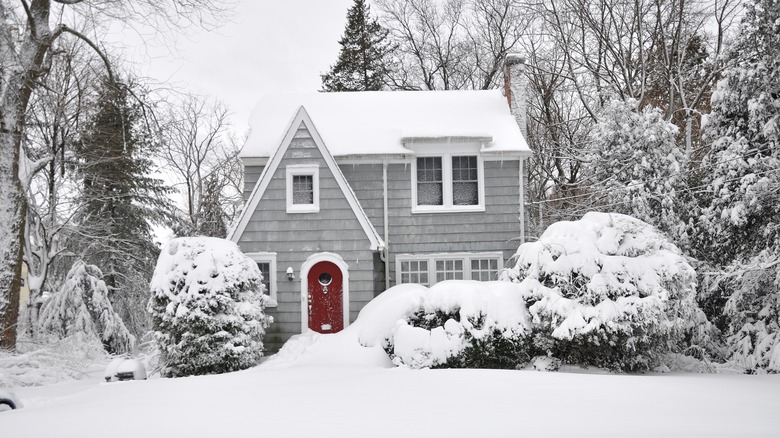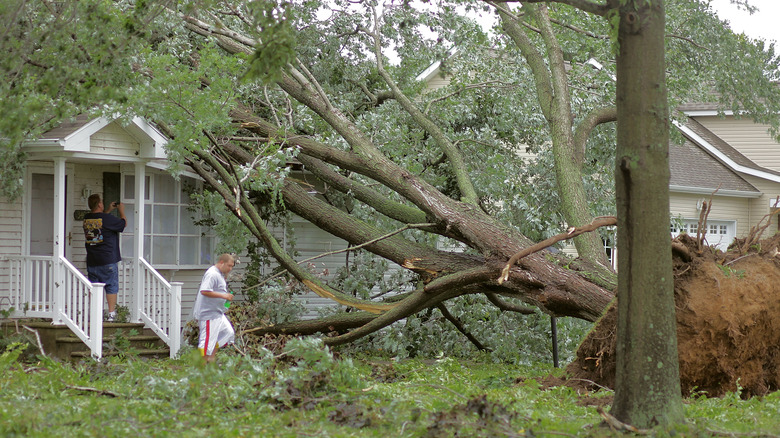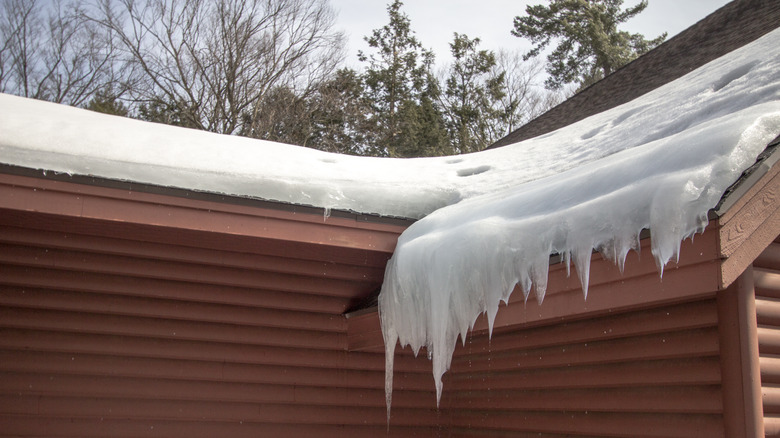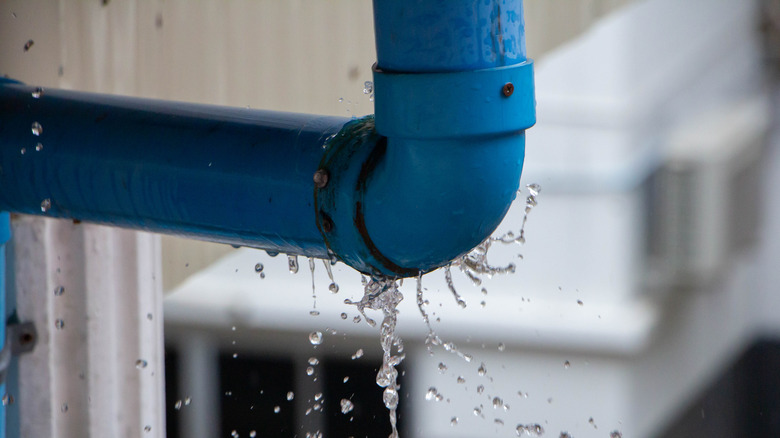Common Reasons To File A Homeowners Insurance Claim In Winter
The cold, harsh winter months are right around the corner, so what better time to prep your home than now? From heavy rain to fast winds to snow blankets, a home can endure various catastrophic calamities that can be difficult to address. While the foundation is built to withstand most weather conditions, it can harm a home in many ways. For example, Economical claims the wood paint on your home can peel due to moisture from rain and snow seeping into cracks and lifting the paint.
This condensation is a significant factor when a home gets damaged in the winter. In particular, the water can wither the foundation, causing leaks. Even mold can start to form if it builds up in warm areas, such as the attic (via Economical). Therefore, it's crucial to take advantage of homeowner's insurance in case of any damage to your residence over winter. While some disturbances aren't detrimental and can be fixed independently, there are a few instances when you should file a claim to avoid paying out of pocket for extensive repairs.
Tree falls on home
Having your home surrounded by trees is a blessing and a curse. On the one hand, they beautify the landscape and add character, color, and shade to the yard for everyone to enjoy. Conversely, those that fall during the harsh winter elements can severely damage your home. According to Progressive, if a tree falls on your property due to ice, fire, strong winds, and hail, your policy will typically cover any cleanup and removal.
Reviewing your policy is essential to prepare for the winter, especially if you live in an area with intense weather conditions. Most insurance carriers can cover up to $1,000 for tree removal, per Insurance Information Institute. To prevent a tree from falling on your home, inspect those that surround your property by looking at their structure to determine if any are dying or defective. If you come across any concerns, take photos and see if any can be removed prior to winter.
Ice dams form
Living in a state with annual snow days can be enjoyable and filled with fun activities, like making snow angels, having a snowball fight, or building the best snowman. Of course, most cars, trees, lawns, and buildings will be covered in a white blanket, too, making everything feel magical.
However, those emotions will no doubt be dampened when a blizzard locks you in or creates an ice dam on your roof, which can be detrimental to the home. According to the National Weather Service, an ice dam occurs when the roof gets coated in snow that melts during the day but refreezes at night. The water can even freeze under the gutters and make its way to the attic, creating mold and other indoor damage.
An easy way to prevent ice dams is frequently cleaning your gutters. Homeowner's insurance will cover the damage to ice dams, according to Progressive. Depending on your coverage limits, they might be able to do so for the ceiling, walls, or roof costs. Contact your homeowner's insurance to find out more.
Water pipes erupt
Without running water in the house, it certainly isn't easy to clean the dishes, take a shower, wash your hands, or brush your teeth. During winter, water pipes are prone to freeze and expand, causing them to eventually burst, according to the American Red Cross. Indeed, you'll know quickly if a pipe has surged if you don't have any running water. Most lines break in areas without proper heating, such as attics, basements, and garages. One way to prevent pipes from bursting is to add insulation to any cold spaces.
Even though homeowner's insurance covers water pipe bursts, you won't be protected if you fail to properly prepare your home against the harsh winter elements before going on vacation and a pipe explodes, according to American Family Insurance. However, even if you've done your due diligence and a pipe freezes and erupts unexpectedly, you should expect to be covered. Checking with your carrier will help prepare you in case a water pipe bursts in your home. To be extra cautious, have a plumber stop by to check all the lines before winter arrives. Make sure they drain those that won't be used as often, such as for swimming pools or sprinklers.




